When a Death Occurs
To register a death you need to attain a formal death certificate
View our free guides:
The first step to take when a death occurs is to have a doctor issue a Medical Certificate of Cause of Death
There are many scenarios you may face when a death occurs, you will need to be issued with a death certificate in each case before you can organise the funeral.
You can request as many certificates of death as you need because you will require an official copy when informing others of the passing of the deceased. It is best to collect these copies when you get the original death certificate, as requesting copies later will take longer, and is more expensive.
Rowland Brothers will support and advise you whatever situation you may be facing, and we are able to collect and look after your loved one at our chapel of rest, as soon as you get in touch with us. We ensure you know all of the details required so you feel comfortable dealing with this first stage and know how to register the death.
Contact Rowland Brothers on 0800 0789 636 to arrange the removal of the deceased into our care.

When someone dies
at home
When a death occurs at home, contact the deceased’s GP. They will visit and confirm that the patient has passed away and issue a Medical Certificate of Cause of Death. You should then make arrangements for the removal of the deceased to a Chapel of Rest, Rowland Brothers are here to assist.
When someone dies
at a nursing home
When a death occurs at a nursing home, staff will arrange for a doctor to visit. Once they have confirmed the death – you should advise the matron or duty nurse to contact Rowland Brothers to conduct the removal to a Chapel of Rest.
When someone dies
in hospital
When a death occurs in hospital, the doctor attending the deceased will normally issue the Medical Certificate of Cause of Death. The Hospital Administrator will advise you where and when the certificate will be made available for collection. You will need to speak to the Patients’ Affairs Office – they will issue various documents that will assist with funeral arrangements.
When is a death reported to the coroner?
In some circumstances the death must be reported to the coroner. This happens when:
- There is no doctor who can issue a Medical Certificate of Cause of Death
- The deceased was not seen by the doctor issuing the medical certificate after death nor within 14 days before death
- The cause of death is unknown
- The cause of death is believed to be unnatural or suspicious
- Death occurred during an operation or before recovery from an anaesthetic
- Death is due to industrial disease or industrial poisoning
Once a death has been reported to the coroner, the registrar can’t register the death until the coroner has decided whether any further investigation is necessary. In most cases this isn’t necessary, however, and the registration can be completed straight away.
What the coroner can do
When someone passes away you face the possibility of needing to wait for a coroners investigation. In this case the coroner can take one of three actions:
- No further action – the doctor will then issue the Medical Cause of Death Certificate and issue a form (Part A) direct to the register office
- Conduct a post mortem – this will establish the cause of death – once this is completed you can register the death with a form (Part B) sent direct to the register office
- Hold an inquest – on completion of the inquest the coroner will register the death and pass all necessary paperwork directly to the funeral director. The death certificate issued by the registrar will not be available until the inquest has been held
Call us any time
We’ll be here when you need us. Please call us with any questions or concerns:
0800 0789 636
Croydon: 020 8684 1667
Purley: 020 8660 5547
Old Coulsdon: 01737 555 202
Warlingham: 01883 623 067
New Addington: 01689 842 046
Beddington: 020 8681 2001

